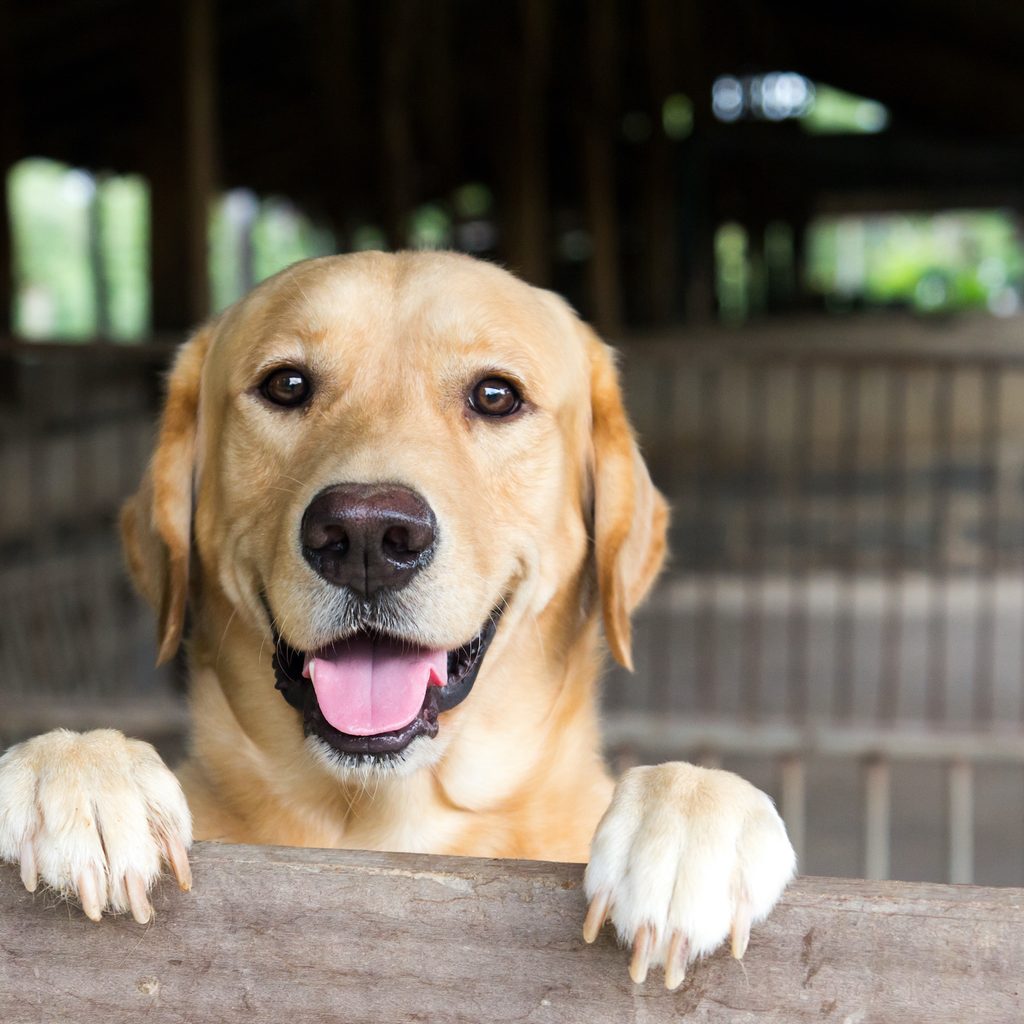It’s easy to see why Labrador retrievers make such popular pets. They’re affectionate, loyal, and cute as a button, but many wonder whether their large size and even larger personalities make them excellent guard-dog candidates as well. Before even thinking about that, though — are Labs good guard dogs?
Like many canine questions, the answer isn’t a simple yes or no. There are tons of factors that affect a pup’s ability to alert and protect — many of which have to do with their breed — so it’s important to do your research before diving into the deep end of this process. Read on to discover what traits could make or break a Lab’s ability to become a confident and competent guard dog, as well as what to do if the potential is there.
Watchdogs vs. guard dogs
Before deciding whether your Lab is up to the job, it’s important to understand the differences between watchdogs and guard dogs. It’s true that there is some overlap in their duties, but their full job descriptions differ more than you may think.
Though we usually enlist the knowledge of veterinarians and dog trainers, we’ve found a different kind of expert for the nitty-gritty of canine jargon. When it comes to the difference between a watch and guard dog, Davis Law Group explains, “A watchdog has one primary function – sound the alarm when anything unusual is detected…” whereas “a guard dog is expected to bark as an alert but is also capable of attacking or restraining.”
Generally, watchdogs are not your large, hyper-vigilant intimidators meant to scare off intruders —those are your guard dogs. Instead, look for a breed that is loud when needed but also able to decide what is and isn’t worth an alert. This may lead you to wonder, again: are Labs good guard dogs?

Can a Labrador protect you?
As the most popular dog breed in the US, as listed by the American Kennel Club, Labrador retrievers are revered for their outgoing and friendly personalities. They are extremely playful, highly adaptable, and ready to be best buds with nearly everyone they come across. The AKC scored this breed as somewhat protective and vigilant, as well as moderately likely to bark. So, while Labs are certainly not known to be watch or guard dogs — nor have they ever been bred for those purposes — it certainly isn’t impossible.
Personality, training, and even the right rewards can be important factors in whether a dog can guard or alert. And since Labs are incredibly smart and often responsive to rewards — traits confirmed by a 2006 publication by canine behavior researcher Stanley Coren —you may find success with learning the appropriate skills.
Can Labs be trained as guard dogs?
Even though Labradors are not naturally protective, they are incredibly loyal. This could be motivating enough (alongside plenty of praise, playtime, and treats, of course) to get your pup through all of the necessary training to become an efficient watch or guard dog.
To get started, practice plenty of obedience training and bonding with your Lab while you search for a professional trainer who can guide you through the process safely. Even if you decide to only take the watchdog route with your pup, you should never take these lessons lightly. A small mistake can have big consequences, after all, so we can’t recommend trying this on your own. With the help of a trainer, though, your portion of the work may not seem so tricky! Someone else will be doing the problem-solving for you, but you still need to put in the practice hours with your Labrador retriever.
Will a Lab attack an intruder?
Because you’re working against your Labrador’s outgoing nature, you and your trainer may have trouble encouraging your dog to keep an intruder busy. They are not naturally wary of strangers, though they may be provoked to attack when they feel like they or their loved ones are threatened.
Even so, you should never purposely provoke your dog. Not only does it put everyone in unnecessary danger, but it can dismantle any foundation of trust you and your buddy already have. Your trainer will be able to make the best suggestions based on your Lab’s behaviors, but you may want to think about whether your pup would make a better watchdog — or even just a companion — instead.
Whether or not you decide to pursue watchdog training with your Labrador retriever, you can rest assured that you have one loyal, fun-loving friend on your hands. Besides, there are so many other jobs your dog could have, from fetching the mail (AKA retrieving — what your buddy was bred to do) to cheering you up after a hard day.




